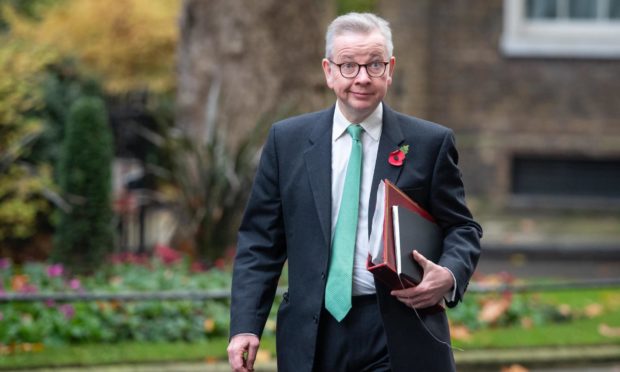Michael Gove says the “exceptional circumstances” of Brexit mean Westminster does not need the consent of the Scottish Parliament to forge ahead with post-EU plans.
MSPs voted in October not to consent to the UK Government’s legislation to set up an “internal market” after Brexit.
Constitution Secretary Mike Russell said the Internal Market Bill, which is making its way through the Commons, would “fundamentally undermine” devolution.
The Bill will give the UK Government the power to spend in devolved areas, such as health, housing and education.
Asked if the UK Government will plough ahead with the plan, whether or not MSPs approve, Mr Gove said: “We want legislative consent, but there are exceptional circumstances here so, yes.”
He added: “I’ve got a great regard for the views of the Scottish Government, but respectfully disagree.
“We don’t normally legislate without a legislative consent motion (LCM), of course, we work hard in order to secure them.
“But there are certain exceptional circumstances, and leaving the European Union is one, where we may need to legislate without necessarily having an LCM.”
Mr Gove rejected the idea that Scotland was being denied a voice in the Brexit process as a result.
He said: “The Scottish Government does have a say in the outcome through the joint ministerial committee and a number of other fora and indeed Scottish electors have a say in the outcome, because they send Members of Parliament to Westminster.”
‘It’s a great report’
The Cabinet Office minister, who was appearing before the Commons constitution committee, was later quizzed on a long overdue report into devolution.
The review, which was set up by Theresa May last July, was tasked with investigating how the Union could be strengthened after MPs concluded relations had “broken down” between the UK and Scottish Government.
SNP MP Ronnie Cowan asked why Lord Dunlop’s report, thought to have been completed last Christmas, had been “locked away”.
Mr Gove said he wanted to see the peer’s findings published “before the end of the year”, adding: “It’s not the case that the Dunlop report is like the second Mrs Rochester.
“It’s not being kept in the attic, we’re not embarrassed by it. It’s a great report.”

